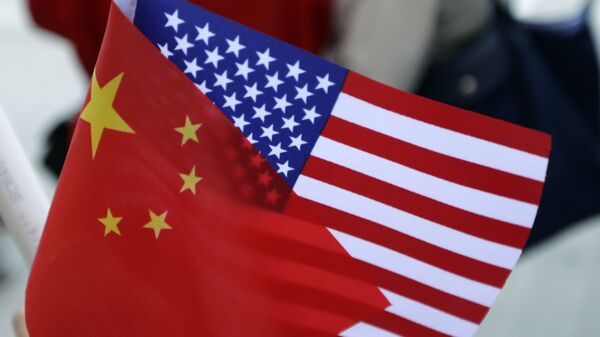Kristian Rouz — The ongoing US corporate earnings season is poised to become the best in seven years as most CEOs are expecting the benefits of President Donald Trump's tax cuts, deregulation, and a pivot to domestic consumption to translate into higher private-sector revenues.
This comes despite warnings that the lingering uncertainty over China trade could subtract percentage points from the US GDP this quarter. In actuality, the effects of bilateral tensions on economic growth in both China and the US are still unknown, as last quarter the US economy slightly underperformed due to the still rampant trade deficits.
READ MORE: A Pawn in Their Game? US Cozies Up to Taiwan, Angering China
According to one of the largest US banks, JP Morgan Chase & Co., corporate profits will outperform expectations by 4-5 percent. Some analysts say the positive effects of the tax reform could push this figure to 6 percent due to the ongoing rally in the stock market, share buybacks, and an intensified deal-making.
"Company guidance and Street estimates are likely too low with respect to actual tax benefits, the weaker US dollar and higher oil," JPMorgan experts wrote.
This week, several major US-based multinationals are set to report their revenues, and the highly-anticipated figures will provide a clue as to whether the China trade feud has affected the US private sector in a positive or negative way.
This comes as President Trump is targeting between $50 bln and $150 bln worth of China trade with tariffs and other restrictions, while Beijing vowed to slap tariffs on US agricultural imports,the total worth of which stood at roughly $20 bln last year.
According to the bank Credit Suisse, up to 25 US corporations are immediately exposed to the negative effects of the possible tariffs, including Boeing, Intel, and Chevron. Meanwhile, more than 180 enterprises are reporting this week, and the majority of CEOs say they are bracing for any outcome of the trade friction.
"Management has to walk a fine line between flapping their arms and lobbying against tariffs, and presenting themselves as vulnerable to tariffs," Jack Ablin of Chicago-based Cresset Wealth Advisors said.
So far, 87 companies on the S&P 500 index have reported their earnings, and the figures are suggesting a stunning 20-percent increase in US corporate profits. This compared to total corporate profits of $1.767 trln last quarter, and $1.642 trln a year ago.
READ MORE: US Weighs Non-Tariff Restrictions on China Investments
"It marks the best growth recorded since 2011 when the (S&P 500) was climbing out of the depths of the latest recession, and is reminiscent of the growth recorded at the peak of the prior bull market," Lindsey Bell of investment research firm CFRA wrote.
While a mutual exchange in prohibitive tariffs could possibly affect the performance of the corporate sector, the majority of US companies are more focused on the domestic consumer market.
Some CEOs have noted that a sign of deterioration in consumer sentiment would pose a much greater threat to their earnings than a foreign trade dispute, the consequences of which are only hypothetical.





